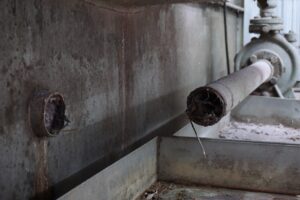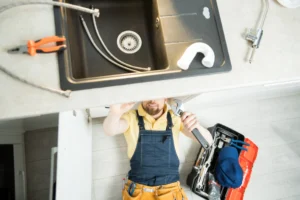Plumbing is a vital component in the infrastructure of commercial and residential spaces as it ensures proper flow of water, wastes and gas. However, there is a regulatory landscape beneath the surface of routine repairs and installations governed by permits. The work of a professional plumber needs to adhere to the local safety standards and building codes of the state. Acquisition of permits is a pivotal step that delineates between potential liabilities and lawful execution. In this article, we explore the intricacies of plumbing work to help you understand processes that require permits for regulatory compliance and integrity of our infrastructure.
Importance of Plumbing Permits
Acquisition of permits for plumbing procedures guarantee the functionality, safety, and longevity of a community’s infrastructure. Besides its role as a bureaucratic requirement, these permits aim to safeguard against potential hazards by ensuring that the work done in a residential or commercial building complies with established codes and standards.

Do I need a permit for my plumbing needs?
This level of scrutiny conducted in the permitting process guarantees precise execution of plumbing projects. This, in turn, reduces the likelihood of contamination, unexpected leaks and even worse, structural damage. A permit also facilitates accountability that allows regulatory bodies to trace and rectify issues promptly. Therefore, plumbing permits are a cornerstone of public welfare that fosters reliable and secure infrastructure for residents and businesses.
Plumbing Projects That Necessitate Permits
- New Installations
Plumbing installations happening for the first time need licenses owing to serious considerations of safety and regulations. These official documents ensure installations abide by the necessary laws and standards, which protects public health and environmental integrity. By obtaining a permit, experts agree to follow set rules, which helps to avoid possible dangers such as leaks, pollution, and structural damage. Furthermore, permits allow for inspections by trained authorities to ensure the quality and suitability of the plumbing work. This control ensures accountability and quality assurance throughout the installation process, lowering the probability of future costly repairs.
- Renovations or Adjustments
Substantial changes or improvements to the current piping work necessitate permits that approve the authenticity of the project. This includes piping alterations, fixture relocations and major adjustments to the building’s plumbing system architecture. These restrictions also ensure that plumbing changes adhere to environmental demands, preventing inappropriate disposal of wastewater or chemicals that could harm ecosystems. The official documents improve accountability as well as control, allowing authorities to check plumber credentials and material quality used during restorations.
- Replacements
While minor repairs like fixing a leaky faucet may not require permits, extensive repairs or replacements of components within the plumbing system, such as sewer lines or water heaters, often demand official authorization. They serve as documentation of work completed, invaluable for insurance claims and property assessments. Ultimately, requiring permits for plumbing replacements upholds public safety, ensures quality outcome, and maintains the integrity of built environments.
The Process;
- Submit an Application
To initiate this process, begin by researching permit requirements and local building regulations around your area. This way, you get to identify appropriate regulatory authority responsible for giving out plumbing permits within the state. Sometimes you have an option to submit the necessary documentation through their online portal, but it is most preferable to deliver it in person. You need comprehensive application package containing specifications, detailed plans, and supportive documents that outline the proposed construction project. Make sure to issue out accurate and complete information that helps speed up review process. Once you have confirmed all application details, the next step is to submit these documents to designated authority awaiting further instructions or feedback on approval.
- Review and Approval
Upon submission of detailed plans and specifications, regulatory authorities meticulously examine the proposed plumbing system to ensure adherence to building codes and safety standards. Through thorough evaluation and collaboration between plumbers and inspectors, you will receive a permit, signifying the green light for the commencement of plumbing installations. This helps to guarantee the integrity and functionality of the infrastructure after a thorough assessment of what project will take place.
Issuance of Permits
Once the proposed plumbing work meets regulatory requirements, the regulatory department issues the necessary permits, authorizing the commencement of construction or installation activities. Permits may specify conditions, timelines, and inspection requirements to ensure compliance throughout the project duration. It is important to read and understand the contents of the permit as it outlines the conditions and timelines expected for completion.
Plumbing work needing permits emphasizes the critical necessity of safety, compliance, and regulatory adherence in the building and home improvement industries. By acquiring permits for prospective plumbing installations, renovations, or repairs, stakeholders help to maintain quality, accountability, and public welfare. Recognizing the importance of plumbing permits is critical to creating a culture of safety, integrity, and professionalism in the built environment.




